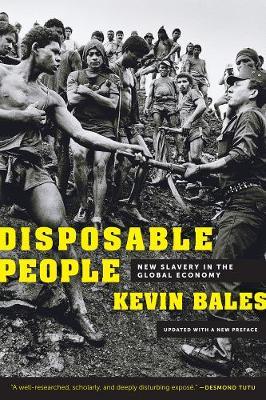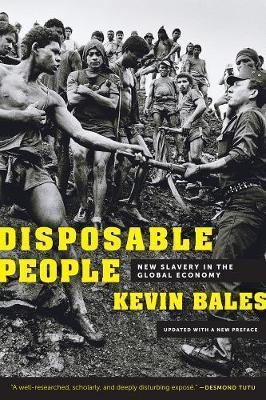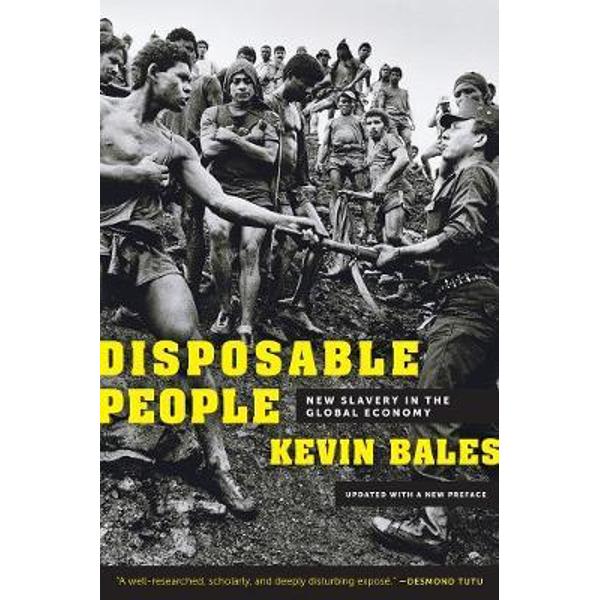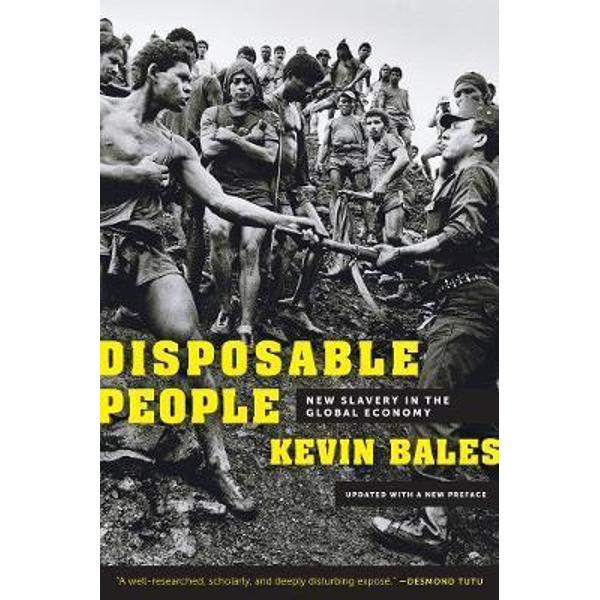Disposable People
Disposable People
Bales' vivid case studies present actual slaves, slaveholders, and public officials in well-drawn historical, geographical, and cultural contexts. He observes the complex economic relationships of modern slavery and is aware that liberation is a bitter victory for a child prostitute or a bondaged miner if the result is starvation. Bales offers suggestions for combating the new slavery and provides examples of very positive results from organizations such as Anti-Slavery International, the Pastoral Land Commission in Brazil, and the Human Rights Commission in Pakistan. He also calls for researchers to follow the flow of raw materials and products from slave to marketplace in order to effectively target campaigns of "naming and shaming" corporations linked to slavery. "Disposable People" is the first book to point the way to abolishing slavery in today's global economy. All of the author's royalties from this book go to fund anti-slavery projects around the world.
PRP: 215.79 Lei
Acesta este Prețul Recomandat de Producător. Prețul de vânzare al produsului este afișat mai jos.
194.21Lei
194.21Lei
215.79 LeiIndisponibil
Descrierea produsului
Bales' vivid case studies present actual slaves, slaveholders, and public officials in well-drawn historical, geographical, and cultural contexts. He observes the complex economic relationships of modern slavery and is aware that liberation is a bitter victory for a child prostitute or a bondaged miner if the result is starvation. Bales offers suggestions for combating the new slavery and provides examples of very positive results from organizations such as Anti-Slavery International, the Pastoral Land Commission in Brazil, and the Human Rights Commission in Pakistan. He also calls for researchers to follow the flow of raw materials and products from slave to marketplace in order to effectively target campaigns of "naming and shaming" corporations linked to slavery. "Disposable People" is the first book to point the way to abolishing slavery in today's global economy. All of the author's royalties from this book go to fund anti-slavery projects around the world.
Detaliile produsului















